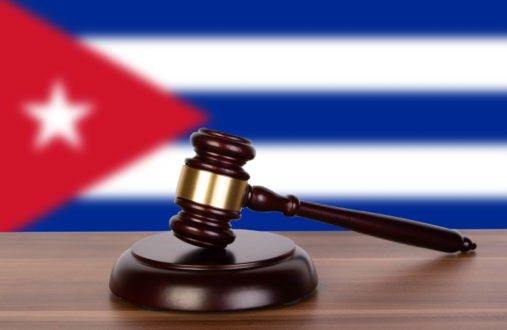After a five-month wait, Nación Data has launched the Spanish version of the Data Journalism Handbook. The book is free, open-source, and is designed to help journalists use data to improve their stories.
The International Center for Journalists named three Latin American journalists and a Portuguese designer who instructed a course for the Knight Center as the next Knight International Journalism Fellows last week.
In 1994, journalist Giannina Segnini founded a one-woman investigative unit—herself—at Costa Rica’s La Nación newspaper. Since then, the unit has grown into a five-person team that is trailblazing data journalism in Latin America, according to Journalism.co.uk.
On Monday, Aug. 20, the Brazilian newspaper Folha de São Paulo announced the launch of the website FolhaSPDados, an online resource for the up-coming mayoral elections in the city of São Paulo. The website will feature interactive maps and infographics to illustrate and accompany the newspaper's coverage of the election's main themes.
On the one hand, there are reporters that are eager to tease out available data and extract valuable information about public administration. On the other hand, there are technology enthusiasts that are trying to find ways to build mapping and information visualization tools that can circulate on the world web. What happens when you put these two groups together? Searching for an answer, the Brazilian newspaper Estado de S. Paulo will launch the first hacker marathon, or "Hackathon," organized by a news outlet in Brazil.
In the making of investigative reports, journalists need to work with different sources, codes, and data of varying formats. Online, there are tools available for creating and manipulating databases, but the question is knowing which are the most useful for investigative journalism. The Knight Center for Journalism in the Americas asked this question to four Brazilian reporters.
The International Center For Journalists (ICFJ) has announced the newest recipients of the Knight International Journalism Fellowships.
Following the steps of newspapers such as The Guardian (United Kingdom), Los Angeles Times (USA), La Información (Spain), and La Nación (Argentina), the Brazilian newspaper Folha de São Paulo launched on its website the blog "Afinal de Contas," or After All.
Tools for managing, visualizing, and distributing data was a recurring theme in the 16 vanguard media projects that will share $4.7 million in funding from the 2011 Knight News Challenge. Since it began in 2006, the initiative, primarily funded by the John S. and James L Knight Foundation, has given out $27 million to 76 projects to promote journalistic innovation.
Just as the newest WikiLeaks release has strained Washington’s relations with much of the world, including Latin America, its revelations have also shaken Canada, threatening its ties to Afghanistan. Ottawa’s ambassador to Kabul has offered to resign over his criticism of the Afghan president.
U.S. Secretary of State Hillary Clinton's probing questions into the state of Argentine President Cristina Fernandez's mental health, reports of Cuban spies and Colombian FARC guerrillas in Venezuela, and statements that Bolivian President Evo Morales had been invited to Brazil to have a sinus tumor removed are just some of the disclosures made in the leaked diplomatic cables whistle-blower site WikiLeaks released in what has become known as "cablegate."

In Cuba, not even the most basic statistics, such as macroeconomic indices, are available or reliable. And poor internet quality and limitations hinder deeper research. Still, data journalism lives on the island.